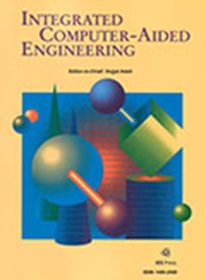通过区块链分析提供基于流的可解释建议
IF 5.3
2区 计算机科学
Q1 COMPUTER SCIENCE, ARTIFICIAL INTELLIGENCE
引用次数: 5
摘要
可解释的推荐使用户能够理解为什么某些项目被推荐,并最终培养系统的透明度、可信度和信心。大型众包推荐系统应该提高推荐的真实性和透明度。为了解决这一挑战,本文建议通过区块链分析使用基于流的可解释建议。我们的贡献依赖于链式历史数据来提高在线协同推荐过滤器的质量和透明度——基于记忆和基于模型——使用来自两个大型旅游众包平台(即Expedia和TripAdvisor)的数据流作为用例。构建基于历史信任的评分模型,我们的方法作为外部模块实现,并通过后推荐组件与协作过滤器集成。用户间信任分析历史,可追溯性和真实性由区块链确保,因为这些配置文件作为智能合约存储在私有以太坊网络中。我们对HotelExpedia和Tripadvisor的实证评估一致表明,基于区块链的分析对推荐的质量(以召回率衡量)和透明度(通过解释确定)产生了积极影响。本文章由计算机程序翻译,如有差异,请以英文原文为准。
Stream-based explainable recommendations via blockchain profiling
Explainable recommendations enable users to understand why certain items are suggested and, ultimately, nurture system transparency, trustworthiness, and confidence. Large crowdsourcing recommendation systems ought to crucially promote authenticity and transparency of recommendations. To address such challenge, this paper proposes the use of stream-based explainable recommendations via blockchain profiling. Our contribution relies on chained historical data to improve the quality and transparency of online collaborative recommendation filters – Memory-based and Model-based – using, as use cases, data streamed from two large tourism crowdsourcing platforms, namely Expedia and TripAdvisor. Building historical trust-based models of raters, our method is implemented as an external module and integrated with the collaborative filter through a post-recommendation component. The inter-user trust profiling history, traceability and authenticity are ensured by blockchain, since these profiles are stored as a smart contract in a private Ethereum network. Our empirical evaluation with HotelExpedia and Tripadvisor has consistently shown the positive impact of blockchain-based profiling on the quality (measured as recall) and transparency (determined via explanations) of recommendations.
求助全文
通过发布文献求助,成功后即可免费获取论文全文。
去求助
来源期刊

Integrated Computer-Aided Engineering
工程技术-工程:综合
CiteScore
9.90
自引率
21.50%
发文量
21
审稿时长
>12 weeks
期刊介绍:
Integrated Computer-Aided Engineering (ICAE) was founded in 1993. "Based on the premise that interdisciplinary thinking and synergistic collaboration of disciplines can solve complex problems, open new frontiers, and lead to true innovations and breakthroughs, the cornerstone of industrial competitiveness and advancement of the society" as noted in the inaugural issue of the journal.
The focus of ICAE is the integration of leading edge and emerging computer and information technologies for innovative solution of engineering problems. The journal fosters interdisciplinary research and presents a unique forum for innovative computer-aided engineering. It also publishes novel industrial applications of CAE, thus helping to bring new computational paradigms from research labs and classrooms to reality. Areas covered by the journal include (but are not limited to) artificial intelligence, advanced signal processing, biologically inspired computing, cognitive modeling, concurrent engineering, database management, distributed computing, evolutionary computing, fuzzy logic, genetic algorithms, geometric modeling, intelligent and adaptive systems, internet-based technologies, knowledge discovery and engineering, machine learning, mechatronics, mobile computing, multimedia technologies, networking, neural network computing, object-oriented systems, optimization and search, parallel processing, robotics virtual reality, and visualization techniques.
 求助内容:
求助内容: 应助结果提醒方式:
应助结果提醒方式:


